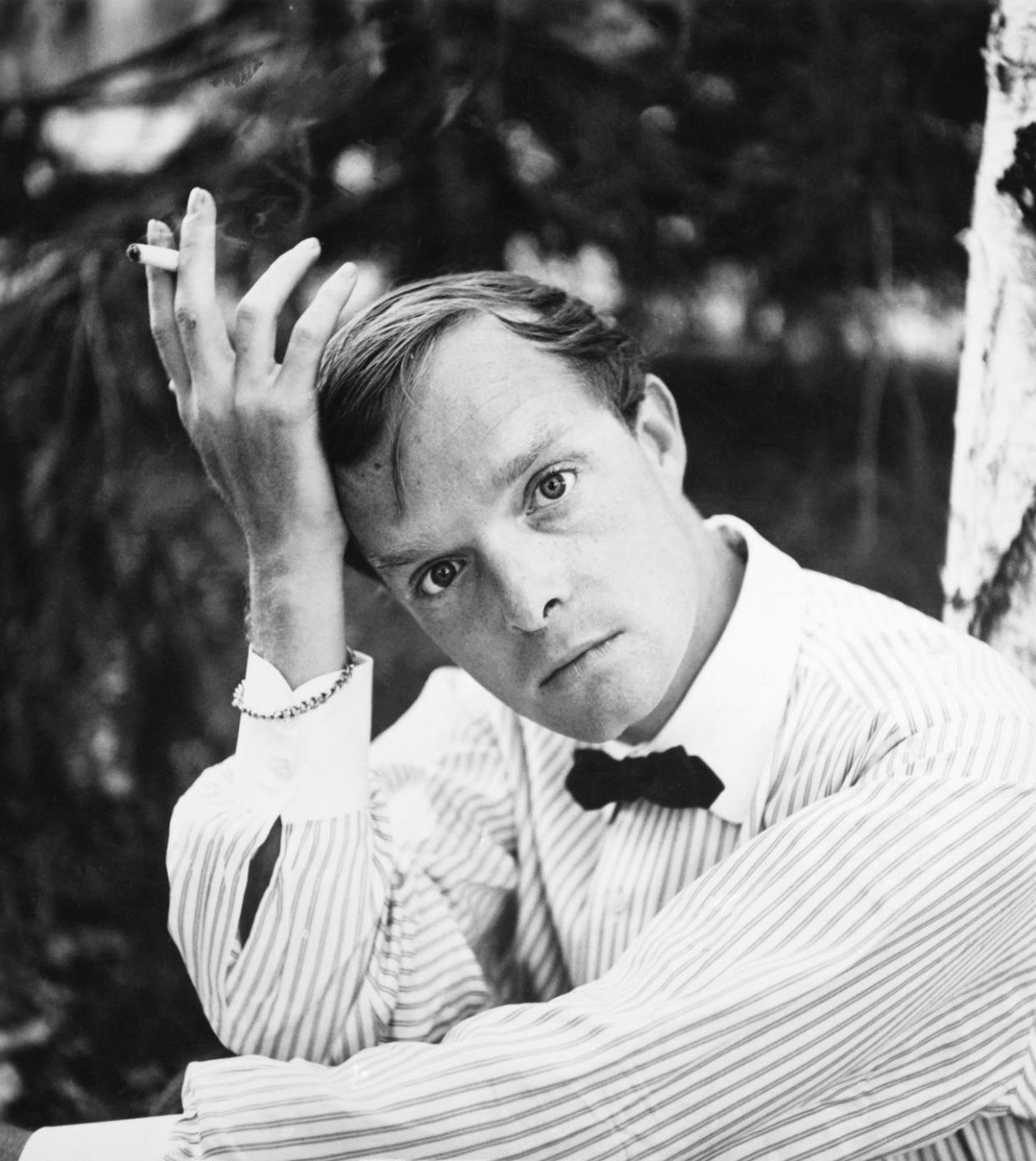The Real Tragedy of Truman Capote's Death
After a few episodes of Feud: Capote vs. The Swans, it dawned on me that the series would end on a mournful note: Truman Capote's death. Sure, the writer was a tough guy with a quick wit and thick skin, but stories of betrayal rarely have a happy conclusion. Episode 7 confirmed my suspicions, showing Capote drinking himself into organ failure. While not the season finale, this episode marked the end of the journey we began in episode 1, when Capote's controversial story, "La Côte Basque, 1965," published in Esquire.
The scorching tale painted a picture of New York’s waspy high society. It was technically fictional—like Capote's previous works, Breakfast at Tiffany’s and In Cold Blood—but he based his characters on his actual friends, a group of women affectionately dubbed "The Swans." To their surprise, "La Côte Basque" included sordid details from their personal lives, including secrets they told Capote in confidence. Soon after the story was published, they cut him off.
Feud unpacks Capote’s betrayal and subsequent self-sabotage through a series of episodes that jump through time. By the time episode 7 rolls around, Capote’s life is in ruins. His favorite Swan, Babe Paley, grows terminally ill—and dies before they can reconcile. Capote's book, Answered Prayers, is unfinished. His longtime partner, Jack Dunphy, has had enough of his antics. On top of it all, high society has gone out of fashion. Without these things, Capote spirals and tries to self-medicate with drugs and alcohol.
In one startling scene, Capote appears on a talk show, drunk and hardly able to function. The writer slurs his words, his body slumps over, and he blacks out. With Jack’s help, Capote wakes up in a treatment center, where he's urged to get his life together. "Where has your high-wire act gotten you," Jack asks. “In a dead-end bed in a dead-end hospital." That realization leads Capote to Joanne Carson’s home in Beverly Hills, where he promises to "dry out" and finally finish Answered Prayers.
Joanne welcomes him with a cozy room, empty notepads, and her unwavering support. The only problem? Capote can’t stop drinking. At all. He spends his days at the pool with a pen in one hand and a glass in the other. It doesn’t take long for the man to become bedridden, and he eventually dies with Joanne at his side. Episode 7 ends with Joanne calling Jack to deliver the news. "Did he say anything?" Jack asks. "He said he was cold. 'Mother. Mama.' And then he said, 'Beautiful Babe.'"
Capote’s last words are actually unknown, but his death occurred similarly to Feud's depiction. Here’s everything we know about his final days.
When Did Truman Capote Die?
The writer died in 1984 at Joanne Carson’s home in Los Angeles. He was 59 years old. Prior to his death, Capote was working on his novel, Answered Prayers. It was supposed to include his story, "La Côte Basque, 1965," but the project never came to fruition. It’s unclear whether the manuscript was hidden, destroyed, or simply incomplete—but one of his rivals, the author Gore Vidal, said Capote’s death was a "wise career move."

What Happened to Truman Capote?
As Feud depicts, Capote suffered from alcoholism—but despite numerous stints in rehab, he always relapsed. After doing so for years on end, his body simply gave out. According to PBS News, Truman Capote’s death was attributed to "liver disease complicated by phlebitis and multiple drug intoxication."
According to The Gainesville Sun, Capote’s funeral was held at a nondenominational chapel at the Westwood Village Cemetery in Brentwood, California. 250 people attended the service. Amongst the crowd was Joanne Carson, along with actor Robert Blake, author Christopher Isherwood, and composer Artie Shaw. During Shaw’s eulogy, he described Capote with one of the writer's own quotes: "I am an alcoholic. I am a drug addict. I am a homosexual. And I am a genius."
Ottawa Citizen reports that Capote was laid to rest in a mahogany coffin decorated with pink roses. The ceremony included recordings from his favorite musicians, Frank Sinatra and Ella Fitzgerald, along with readings from Capote’s written work. Blake, who starred in the film adaptation of Capote’s In Cold Blood, fondly spoke about their bond. "He taught me more about life and acting out there in Kansas than anyone else in my life." Meanwhile, Capote’s lawyer, Allen Schwartz, spoke of his demise as "the terrible price he paid for his talent and his savage wit." After the publication of "La Côte Basque," Capote complained about the backlash to Schwartz. "What did they think they had around them?" he said. "A court jester? They had a writer!"
Capote’s original autopsy report was inconclusive, leading to speculation about his death. Shaw contemplated this in his eulogy. Capote, he presumed, "died of living; it was the deep, rich, and full life that killed him."
After his funeral, Capote was cremated, and his ashes were divvied up. Some went to Joanne Carson, which were auctioned off years later. Legend has it that some of Capote’s remains were given to his ex-lover, Jack Dunphy—and when he died, their ashes were scattered together at Crooked Lake in Long Island.
You Might Also Like
